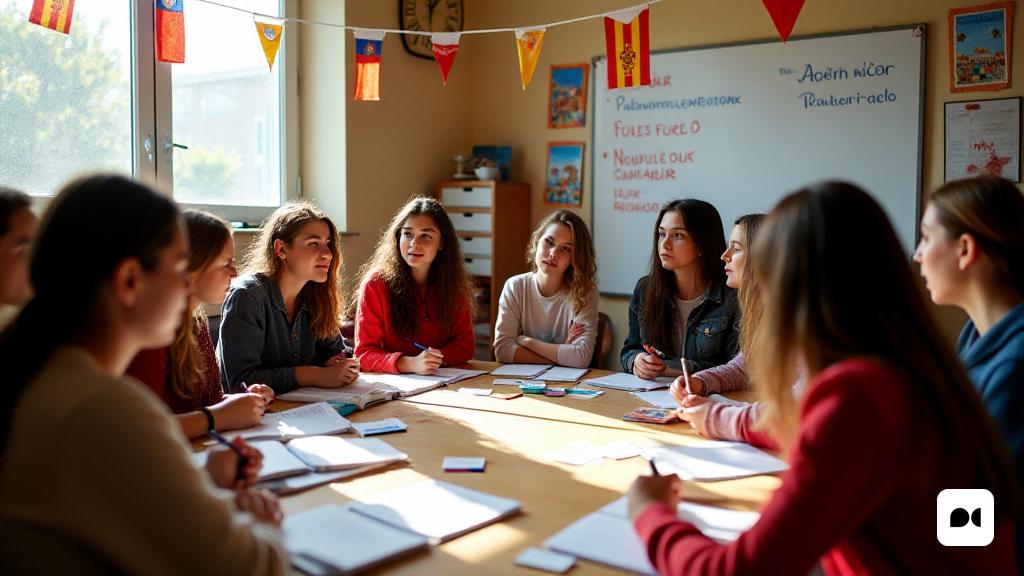A new linguistic horizon at Jacint Verdaguer School
At the Jacint Verdaguer School in Tàrrega, a group of twelve mothers, who do not master Catalan, has found an opportunity to learn the language through conversation sessions. This initiative was born in response to the growing demand for language support and is promoted by the Language Volunteer Program, managed by the Consortium for Linguistic Normalization.
Collaboration and Shared Learning
The meetings, which gather six volunteers with mothers, provide a space to practice Catalan, although participants only have basic knowledge. The idea is to create a warm and cozy atmosphere where they can express themselves without fear. This activity, which began in January and is expected to end in April, could continue if the demand allows.
Reflections of the Director
Manel Rodríguez, director of the school, has expressed his satisfaction with the project, saying that learning Catalan not only benefits mothers, but also favors family integration within the school. “Helps communication with teachers and facilitates support for their children’s duties. It’s a gain for all of us,” he said.
A community solution to a linguistic need
The initiative was born after the school conducted a survey of parents to find volunteers for various activities. The surprise was that most of the offers received were related to the teaching of Catalan. Rodríguez said that solutions for the need for Catalan classes have been sought for some time.
Materials and practical support
The center has been added to the CNL program, which provides materials and resources for everyday situations, including health -related aspects. The dynamic of Lleida’s language volunteering, Freedom Blanes, emphasized that the aim is to foster fluency and confidence in the use of Catalan, moving away from a strictly academic approach.
A Cultural and Social approach
Volunteer Antoni Oriola has commented on the importance of providing mothers tools so that they can communicate comfortably. He also emphasized that learning is not only linguistic, but also cultural. The volunteer Mercè Viladrich added that the exchange benefits both learners and volunteers.
Linguistic practice environments
The Consortium also facilitates language immersion through commercial establishments and entities that collaborate with the program. This allows language couples to practice in real situations, such as in cafes, where they know they will be attended in Catalan, thus strengthening their learning.
The future of the initiative
Although the meetings will end in April, Rodríguez has stated that if there is interest from both volunteers and apprentices, the school will continue to offer this learning space. “The demand for learning Catalan is very high,” he concluded.
A model replicated in Lleida
The Tàrrega initiative is not an isolated case. Throughout Lleida, several linguistic meetings are being held, both in the educational field and in other sectors, such as cultural, social and business. For example, a similar program is also being implemented at the Pinyana School of Alfarràs, as well as in other institutes in the region.
In addition, libraries and organizations such as Caritas de Almenar and the Down Lleida Association have started learning Catalan sessions. Linguistic pairs have also been created between workers from various companies and health professionals, thus expanding the community learning network.

